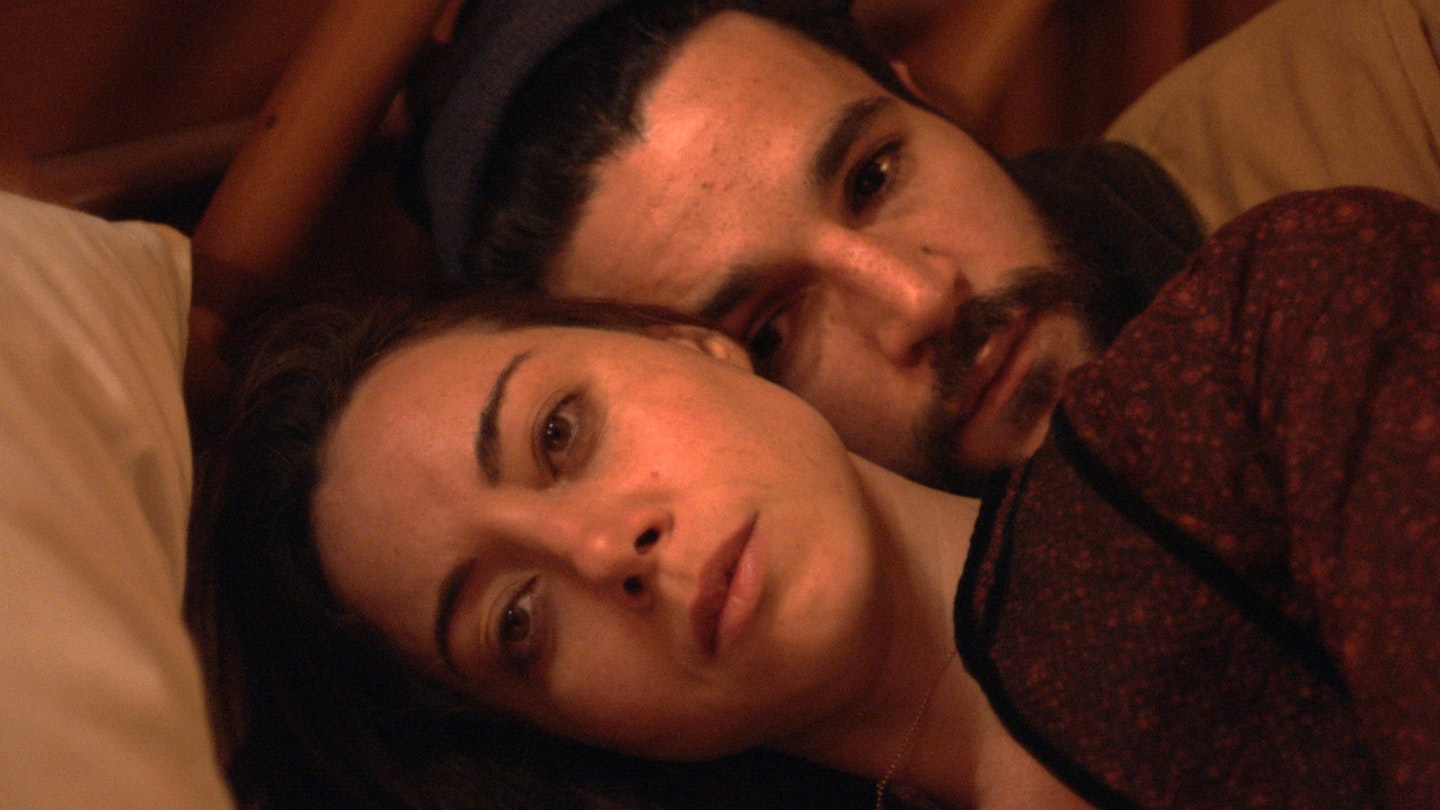There are plenty of films about the making of movies, some of which spotlight the painful process of writing screenplays (Barton Fink, Adaptation and Mank), but few films have explored and exposed the cost of channelling personal trauma into art as effectively as Black Bear. And while a film about the making of a film sounds a little ‘inside baseball’ — or “solipsistic”, as Blair (Sarah Gadon) describes Allison’s oeuvre — it is also a chilling exploration of the destructive power of desire.
The film opens with the arresting image of Allison (Aubrey Plaza) in a bright-red swimsuit, looking out over a misty lake, before retiring to the nearby boathouse to put pen to blank paper, suggesting that what follows this prologue is the product of her imagination. In this section, actor-turned-indie filmmaker Allison is self-assured, playful and unpredictable, making cynical remarks and taking sides within Gabe (Christopher Abbott) and Blair’s relationship, itself a festering swamp of passive-aggression and resentment in which an accidental pregnancy has trapped them. Is what follows really happening? Or is it part of Allison’s developing story? Writer-director Levine isn’t telling.
_Black Bear_ boasts a lead performance that’s not so much a tour de force as a tornado: Hurricane Aubrey.
Part Two rewinds the narrative to find Allison replaying the lakeside scene as part of the making of a film into which she and Gabe (in this section, her husband and director) have sunk their life savings, and which Gabe swears will make her a star. Here, Blair is reimagined as the interloper, colluding with Gabe to fake an affair as a way to draw a more visceral performance from Allison. Here, too, actions have dreadful consequences — unless, of course, this is all part of Allison’s narrative, in which case it’s all grist for the writer’s mill. Adding to the disorientating sense of reality versus artifice — at times it plays like Mulholland Drive re-imagined by John Cassavetes — is the fact that Levine himself is an actor-turned-indie filmmaker, and the narrative is lent an additional metatextual frisson by the fact that it was inspired by events from the lives of Levine and his wife, actor-director Sophia Takal (Always Shine).
In addition to nailing the emotional manipulation inherent in many a male director/female actor collaboration (Stanley Kubrick and Shelley Duvall come to mind), Part Two brilliantly captures the chaos of low-budget filmmaking, but Levine is less sure-footed — and wastes valuable narrative real estate — with some quasi-humorous subplots involving members of the crew. Although, like the ‘A’ story, they are well-observed and evidently drawn from experience, four accidental coffee-cup spillages in the space of five minutes is enough to stretch anyone’s patience.
Even if you don’t tune into the film’s idiosyncratic wavelength, however, Black Bear boasts a lead performance that’s not so much a tour de force as a tornado: Hurricane Aubrey. From the muted first frame to the outrageous (yet perfect) final image, it’s impossible to take your eyes off her, despite excellent work from Abbott and Gadon, and provides further proof that Plaza is one of the finest actors of her generation.

